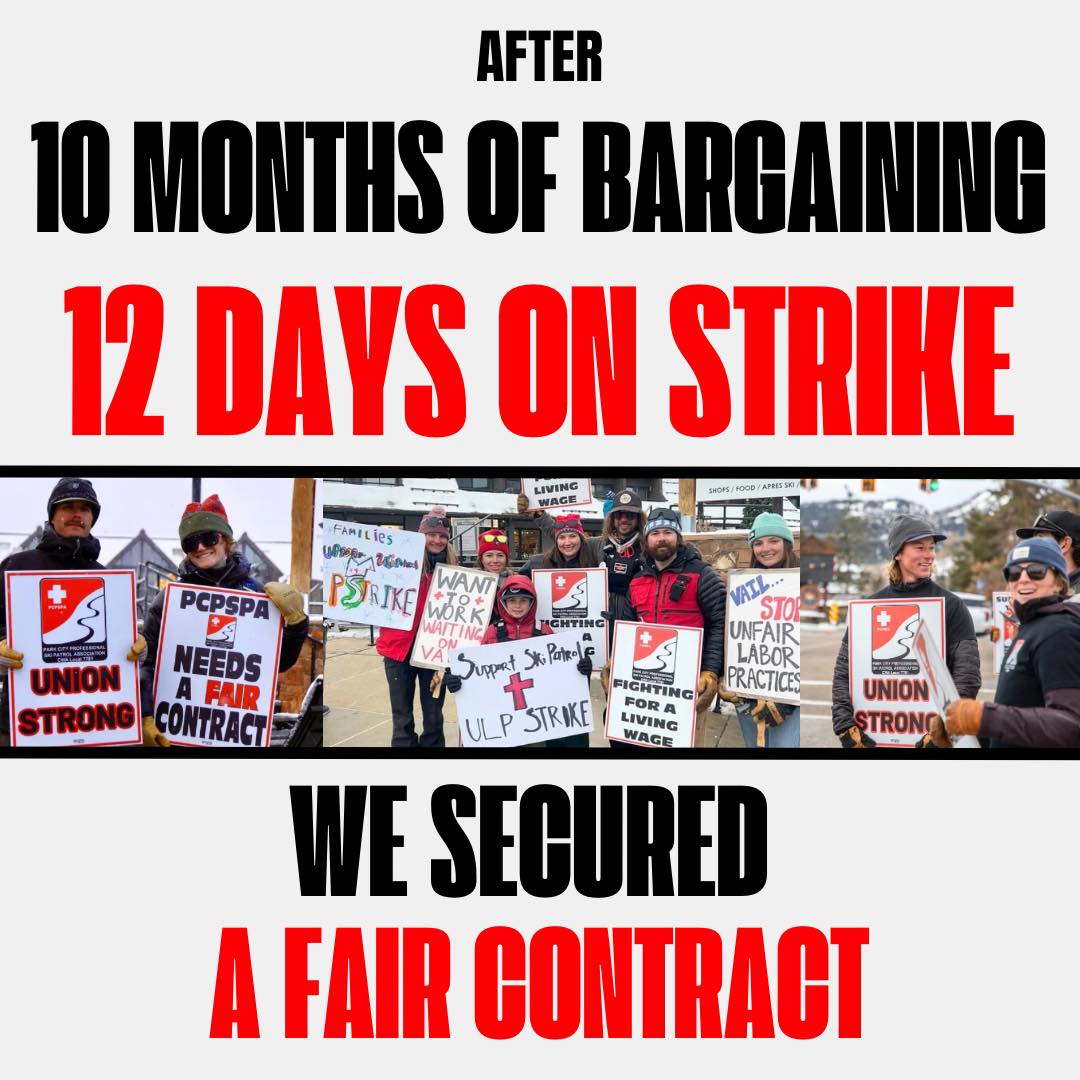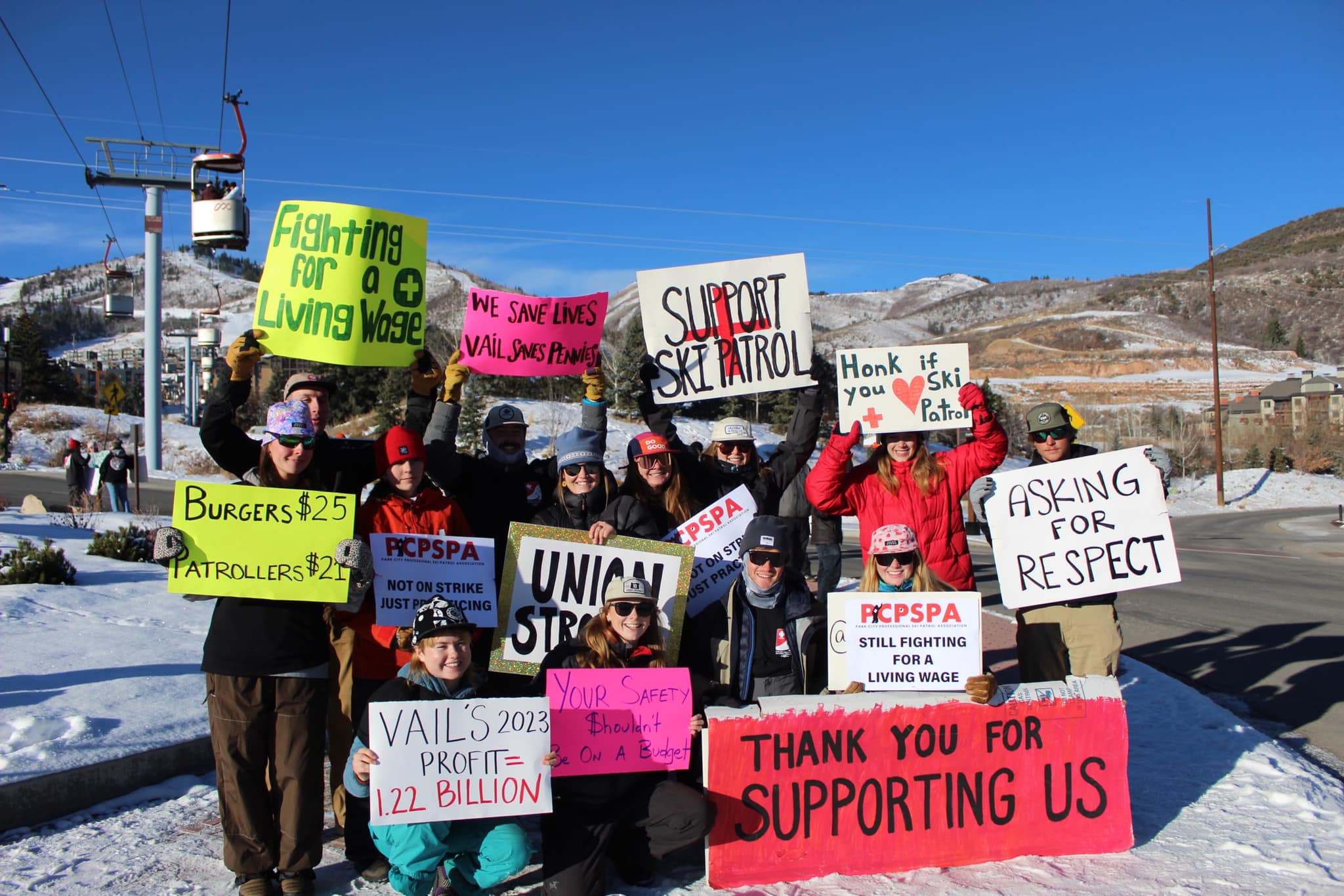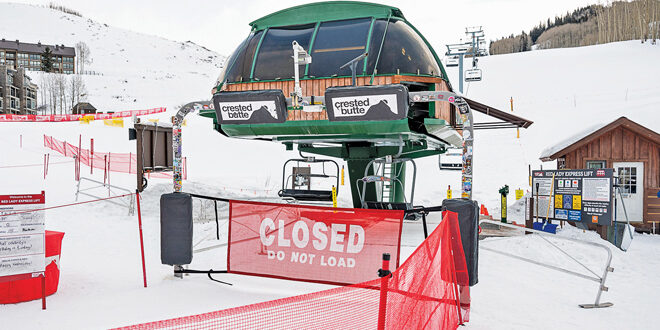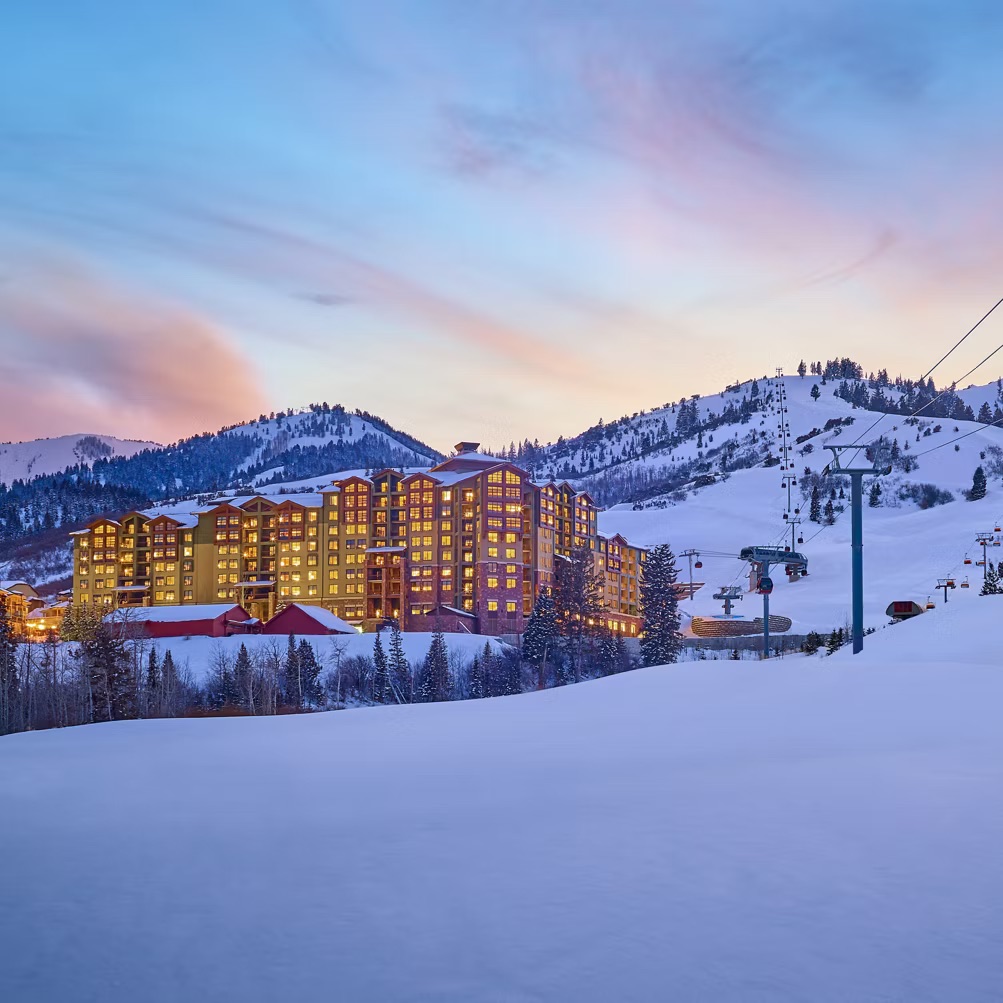
After multiple rounds of negotiations, the Park City Professional Ski Patrol Association (PCPSPA) and Vail have finally come to an agreement. The conflict stems from the end of the PCPSPA’s contract last year, requiring the union to draft a new round of terms, which initially, Vail declined. Although the PCPSPA was vocal about their dissatisfaction, they promised to keep negotiating. The strike didn’t start until Vail employed patrollers from other resorts to fill in for the strikers, otherwise known as “scabs.” As a final resort, the patrollers were forced to go on strike.
- Related: Park City Ski Patrol Officially On Strike Today | Likely First Ever Ski Patrol Strike in History
Despite Vail playing hardball, patrollers eventually succeeded in a wage increase. Overwhelming pressure from the strikers, the ski community, and even multiple news outlets eventually left Vail with no other option but to agree to a new contract. On January 8, a new contract was ratified between the PCPSPA and Vail. A pay raise was the biggest emphasis of the strike. The PCPSPA sought a $2 per hour wage increase for starting patrollers and $7.75 per hour for senior patrollers. “Fighting for a livable wage” was a common mantra for the strikers. We spoke with two patrollers involved in the strike, Louis Chiapetta and Michael Reilly, to dig deeper into the contract. We wanted to know what other benefits patrollers could secure in this new contract.

Available overtime hours were a big benefit for patrollers. Back to the sentiment of a livable wage, patrollers wanted to ensure the ability to work five days a week. The new contract was able to outline an additional 10-15 hours of overtime pay dependent on scheduling. There was also a payment incentive contracted for patroller education including avalanche courses as well as search and rescue courses. This payment incentive can encourage patrollers to further their careers and advance to higher levels of patrollers. Another important detail outlined in the contract was an intent-to-return date established as August 15, before the coming season. Rather than employees having to wait until October-November not knowing if a job for them was still available. Louis explained there wasn’t much ground made on healthcare benefits, but in terms of wages and hours, patrollers obtained a solid contract.
Alongside being able to work certain hours, parental leave was also a big win for patrollers. Michael explained there are a certain amount of hours needed to be worked to qualify for parental leave. For seasonal employees, those numbers were virtually impossible to achieve. You would’ve had to work full-time year-round to qualify. “We have people that are trying to start families, and we want to make this a career- that was a big win,” Micahel expressed. A few other contract specifics were aimed at improving working conditions for patrollers including a uniform station complete with a washer, dryer, and spare uniform parts, carpool vans from the UTA for patroller commutes, and new language outlining how management handles meetings whether they are investigative or disciplinary.

The contract is expected to run through to the end of the season of 2027. We were curious if another fallout is to be expected in the next round of negotiations, but it appears too early to say for sure. “The goal of the union right now is to make sure that this contract is enforced equitably- and that we’re able to maintain the wins”, Louis stressed. He also explains that certain compromises made are certain to be brought up in the next round of a contract draft. Michael also echoed a similar mindset. “It’s caused a lot of stress and anxiety not being paid, so having this contract, we can finally breathe.”
This strike certainly set a precedent and paved the way for new groups to take action against unfair labor practices. During the interview, Louis pointed to a new development happening in another Vail-owned mountain, Crested Butte. A strike authorization vote was approved for the Crested Buttes lift maintenance team. Months of requested contract negotiations, followed by no replies from Vail’s team have pushed the workers to strike as well. Another striking development is unfolding in Breckenridge due to poor living conditions for employee housing. With the major success the PCPSPA was able to achieve, it’s sure to inspire workers of mountain town resorts to follow in their footsteps.
Vail is attempting to make amends with its guests affected by the strike as well. Typically the mountain operates on a no-refund basis. However, it now offers a credit for those who purchased lift tickets at Park City Mountain Resort between December 27 and January 8 of 2024. This credit is to be applied to passes of equal or greater value for the 2025/26 season. Over the course of the next few months, we will see if Vail is able to make up some of its lost clientele and revenue over the fallout effects of the strike. As for the PCPSPA’s next moves, Michael explained it best: “Let’s just focus on this season. Let’s just put our heart out there, because that’s what we wanted to do, is we want to work 100%.”
